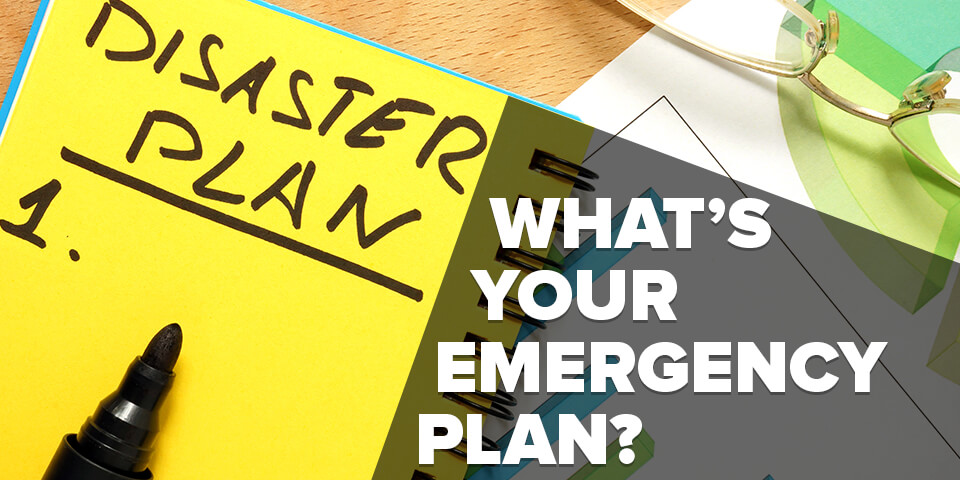
What's Your Emergency Plan?
A family member passes away unexpectedly. Your partner gets sick or injured. Your truck breaks down. When there's an emergency, what's your next move?
The time to think about that is now-before something happens. That's because when you're in the moment, you're emotionally distraught, unable to think clearly and act decisively.
What should you think about as you put together your emergency plan-to minimize the impact that crisis could have on your business? Here are three tips.
#1. Build an Emergency Fund
When Murphy's Law hits and you need to store your truck and purchase a plane ticket to get back home, do you have enough money in reserves to cover those costs and keep your business afloat while you're off the road?
"Anything could happen, and you have to always have enough money to get you home, even if you have a credit card you never use except for emergencies," says Linda Caffee, a veteran expedite owner-operator with her husband Bob.
What is a rule of thumb for how much an owner-operator should put towards an emergency fund?
"I want, at a minimum, to get my fingers on at least $10,000 right now," says Linda. "In terms of industry standards, you should save-for a new truck-five to six cents per mile for maintenance and another four to six cents a mile for emergencies. And you should keep building that up till you get to $10,000 or even $20,000. After all, if you blew an engine, you would need $25,000."
Says Bob, "And if you don't have $25,000 in the bank sitting there waiting for that engine to blow, you're just waiting for your business to fail. Not that engines blow every day but it does happen, and sometimes it's something small- you know, you run over a rock in the road and it pokes a hole in your oil pan-and you lose the engine. Now you're out $25,000."
#2. Put "If-Then" Plans in Place
In a typical workplace, when you have a fire, there's a plan in place to help make the evacuation process go as smoothly and safely as possible. In other words, "if" there is a fire, "then" here's how we'll respond to minimize panic and save as many lives as possible.
That's how an "if-then" plan works. You think through potential emergencies you might encounter while out on the road and determine how you could respond most effectively so that you can keep a clear head and minimize the impact on your business.
For example, in an emergency that requires you to fly home ASAP, where do you put the truck?
One strategy the Caffees have considered is to take the truck to a nearby Freightliner shop to get work done while they deal with the emergency.
"I know a lot of people plan their vacations around their truck maintenance schedule because they don't have a place to park their truck at home," says Bob. "So they take their truck to the shop to get some work done, and tell them, 'We'll be back in ten days.'"
The carrier can also help, says Linda. "Talk to your carrier to see if they have any thoughts about where you can put your truck in that area."
Another idea, says Bob, is to find an outdoor storage area that you can rent a spot for a time.
If one of you gets sick or injured on the road, how should you respond?
"If your partner becomes sick, the other one has to be prepared to find the nearest emergency room hospital and take care of the situation," says Linda. "That's just one area where you both have to be really strong and not lean on the other one too much. And you have to stay calm because if somebody falls off the dock and an ambulance has to come get him, the other person must stay calm enough to get the truck out of harm's way and take care of the business. The business side doesn't quit for an emergency, and you have to think about-if you're loaded especially-that you're responsible for that load. You can't just walk off and leave it. So, you'll need to plan how you would handle that."
#3. Know When to Say When
You might have the time to keep going before you need to get back home for a funeral or another emergency, but are you in the right frame of mind to drive safely?
"I know when my dad passed away we almost missed the funeral trying to get home to it. But if it was a child, I think that would just turn our world so upside down that I don't think I would be in any condition to drive," says Linda. "In a worst-case scenario like this, I think calling your carrier and exploring the possibility of someone coming and getting your truck is something I have heard of happening with some carriers."
The Bottom Line
Stuff happens. And when it does, are you ready?
